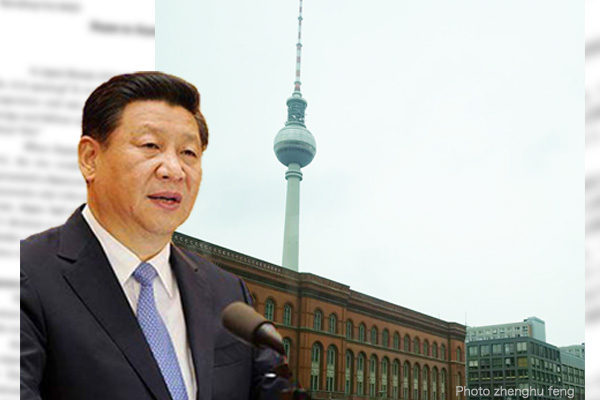A symposium on the quadrilateral cooperation between Japan, the United States, Australia and India was held recently in Berlin, in which I participated as a panelist. In late years, Europe has grown concerned about China’s rise and increasingly interested in the four-way cooperation between Indo-Pacific democracies as a multilateral framework to deal with China.
Sponsoring the symposium was the Konrad Adenauer Stiftung, a leading think tank associated with the Christian Democratic Union, Germany’s largest ruling party. Six researchers from Japan, the U. S., Australia and India were invited to the symposium to discuss the quad cooperation with German experts and a Bundestag lawmaker.
Sharing concerns about China’s BRI
Far away from China, Europe had rarely seen China as a security threat. However, as indicated by the German foreign minister’s speech at the Munich Security Conference last year concluding China’s Belt and Road Initiative as an attempt to build a comprehensive system to shape the world to China’s advantage, Europeans have begun to publicly voice concerns that China is trying to create world order that is not based on freedom and democracy.
At the symposium, I introduced Japanese Prime Minister Shinzo Abe as the world’s first politician to advocate cooperation between Japan, the U. S., Australia and India that share democracy values, as early as 2006 in his book titled “Utsukushii Kuni-e” (Toward a Beautiful Country), inviting surprise from participants.
So far, however, not many have been done within the quad framework. Only a meeting of senior officials at the rank of Assistant Secretary of State from the four countries has been held biannually since it was revived in 2017 for the first time in a decade. No moves have been seen for meetings of foreign ministers and top leaders from the four countries as proposed by Abe and Japan’s Foreign Minister Taro Kono. The four countries’ joint military exercise has not taken place for more than 10 years. As it stands now, the quad cooperation has made progress between three of the four countries.
Importance to promote multi-layered talks
The quad cooperation has not made much progress because they have different levels of confidence in each other and face their respective domestic problems with the expansion of the cooperation (For example, India is hesitant to expand the quad cooperation to cover the military field.) The panelists from the four countries shared a view that cooperation should be advanced not at one bound but step by step.
At the symposium, a question was raised from a German participant why European democracies had not been invited to the quad cooperation. In fact Europe seems hesitant to join a U.S.-led initiative to exclude Chinese telecom giant Huawei Technologies from the 5G next-generation communications network. Furthermore, major European countries have been increasingly critical of the U.S. Trump administration for trying to destroy liberal international order on which global peace and prosperity has been based since after World War II. Nevertheless, Europe has begun to see China as a threat to security, creating an opportunity for Japan, the U. S., Australia and India to cooperate with such European countries as Britain, France and Germany in addressing the China issue. Indo-Pacific and European democracies should consider enhancing their collaboration as one of frameworks for multi-layered talks on China.
Yasushi Tomiyama is a senior fellow and Planning Committee member at the Japan Institute for National Fundamentals. He is a former foreign news editor and bureau chief at Washington, D.C., and London for the Jiji Press.


